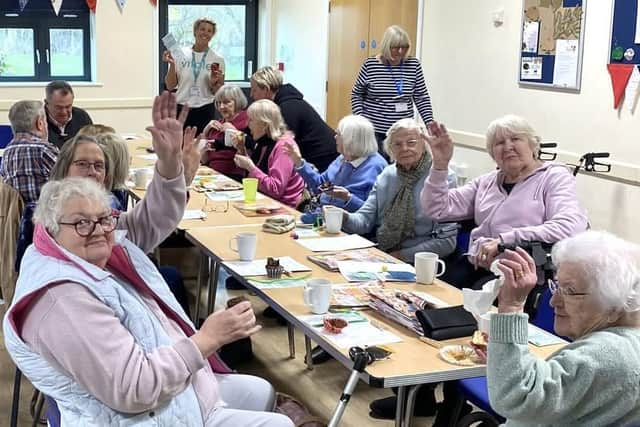Vitale Care emphasises the importance of socialising
and live on Freeview channel 276
Spending time with others is one of the cornerstones for maintaining mental well-being, especially in later life stages.
Social isolation can exacerbate various mental health issues, including depression, anxiety, and cognitive decline. For people living with dementia, Parkinson's, or stroke, the consequences can be particularly profound. Lack of social interaction may accelerate cognitive deterioration, hinder mobility, and impede emotional resilience.
Advertisement
Hide AdAdvertisement
Hide AdIsolation can exacerbate feelings of loneliness and lead to a diminished sense of purpose and belonging.


Vitale's Community Engagement team support groups in Chichester, East Wittering, Selsey and Bognor Regis. We invest in bringing dexterity, craft, music and exercise sessions to people living with dementia, Parkinson's, stroke, mobility and frailty issues, or who are just feeling a little lonely and isolated.
Vitale Care Registered Manager Nicola Munday explains: "Our approach to care is very much about supporting, encouraging and helping people to get out and about in their local community. Whether it's a trip to buy shoes, a medical appointment or joining in an activity at the local garden centre, Vitale believes in the positive power of community. Specialist companionship care can help people build their confidence so they can enjoy socialising again."
"Individuals with dementia often face difficulties in communication and memory retention, making social interactions daunting. They may struggle to engage in conversations or express themselves coherently, leading to frustration and withdrawal.
Advertisement
Hide AdAdvertisement
Hide Ad"Similarly, Parkinson's disease can manifest motor impairments and speech difficulties, posing barriers to social engagement. Stroke survivors may contend with physical disabilities, aphasia, and cognitive impairments, further complicating their ability to interact effectively," explains Vitale's Clinical Nurse Jo Morgan.
Vitale's approach includes:
- Tailored activities: designing activities suited to interests and abilities can foster meaningful interactions. For instance, memory games, art therapy, or music sessions can stimulate cognitive function and evoke positive emotions.
- Supportive environment: creating a supportive and inclusive atmosphere is essential. Vitale Care Professionals offer encouragement, patience, and reassurance, giving a sense of safety and belonging for those with cognitive or physical challenges.
- Communication techniques: Employing clear and concise communication techniques can enhance comprehension and engagement. Using visual aids, gestures, and simple language can aid individuals with dementia or aphasia in expressing themselves and understanding others.
- Technology integration: Leveraging technology can facilitate social connections, especially in the digital age. Vitale Care Professionals can help set up video calls with family members to bridge geographical distances and enhance social engagement.
If you are worried and feeling lonely or are concerned for a loved one, care that helps you get out and about might be right for you.